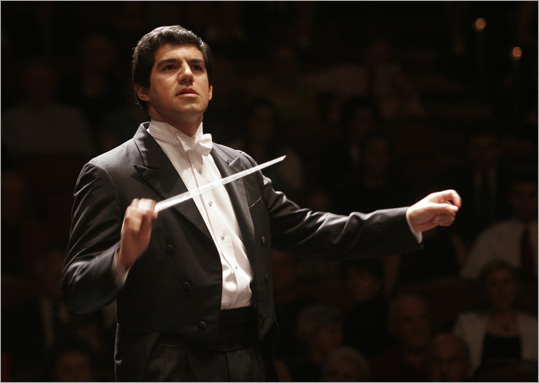Little fizz or panache in Fort Worth Symphony’s Spanish program

Miguel Harth-Bedoya conducted the Fort Worth Symphony Friday night at Bass Performance Hall.
There was promising repertoire and some pleasant moments along the way at Friday night’s Spanish-themed concert by the Fort Worth Symphony Orchestra at Bass Performance Hall. Yet the overall results proved largely disappointing.
Spanish-born pianist Joaquin Achúcarro, who is currently on the faculty at Southern Methodist University, joined the orchestra and music director Miguel Harth-Bedoya to open the concert with Manuel de Falla’s Nights in the Gardens of Spain.

Joaquín Achúcarro
Conductor Harth-Bedoya devotedly explored the rich impressionistic colors painted in this hybrid concerto/tone poem. Unfortunately his efforts were hobbled by a low-energy performance from Achúcarro in the opening movement, “At the Generalife.” The even broader range of colors and effects of the second movement, “Distant Dance,” was likewise answered by an emotionally flat performance from Achúcarro, who finally warmed into the work’s unique energies in the complex passage-work at the beginning of the final movement, “In Gardens of the Mountains of Cordoba.” In spite of some fine and engaging episodes, this evocative score never achieved its potential aura of mysterious beauty.
Achúcarro immediately returned to the stage with conductor Harth-Bedoya for Isaac Albéniz’s Rapsodia Española for piano and orchestra, an intriguing collection of Spanish dance forms strung together into an episodic but continuous single movement. Humor, sentimentality, lively rhythms, and catchy tunes delivered doses of musical pleasantry, and, while the orchestra offered plenty of splash, neither Achúcarro nor Harth-Bedoya found convincing propulsion here. Indeed, the final moment came across as little more than noisy bombast.
Achúcarro followed up, however, with a fine encore in the form of a beautifully poetic and subtly voiced rendition of Scriabin’s Nocturne for Left Hand (including some boldly coloristic but effective use of pedal), providing a high point of the concert.
Harth-Bedoya and the orchestra followed up after intermission with the Intermezzo from Granados’s opera Goyescas. The strings showed to great advantage with the emergence of the sensual, swaying main melody as it passed from section to section. But the Intermezzo as a whole is weakly structured, and came across as little more than a great piece to accompany changing of scenery in an opera.
Not Spanish, but Spanish-inspired, Debussy’s Iberia was by far the strongest composition heard all evening; in this particular program, only the Falla approached the brilliant complexity of Debussy’s masterpiece of impressionism.
Harth-Bedoya dutifully unveiled the mosaic of colors and melodic snippets of “Through the Streets and the Fares”; he focused on the scattered beautiful moments of the “Fragrance of the Night” without managing to focus or achieve momentum. A clean, brilliant tone from the strings dominated the opening of the final movement, “The Morning of a Festival Day,” but, once again, Harth-Bedoya failed to find a sense of trajectory—resulting in a lackluster finale for a work that should present a much higher level of engagement and excitement.
The program will be repeated 7:30 p.m. Saturday and 2 p.m. Sunday. 817-665-6000; fwsymphony.org